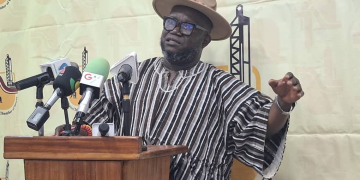- Why Shorter Mining Leases Could Cost Ghana Big Projects and Jobs
Ghana’s mining sector, long the backbone of its economy, is facing a moment of reckoning. The government’s proposed amendments to the Minerals and Mining Act, 2006 (Act 703), aim to tighten regulation and increase state revenues. Yet the Ghana Chamber of Mines warns that these reforms, if implemented as drafted, could erode competitiveness and scare away badly needed investment.
Central to the debate is a proposal to slash the tenure of mining leases from 30 years to 15 years, with a single renewal capped at 10 years. Industry leaders argue this would leave companies with less time to recover multibillion-dollar investments, undermining project economics and discouraging the development of deep or marginal ore bodies.
“Every mine is not the same,” says Chamber CEO Ing. Dr Kenneth Ashigbey. “If tomorrow we encounter a project requiring a longer period due to its complexities, why should the government deny that flexibility?”
The Chamber warns that shorter leases would incentivise “high-grading”, the practice of extracting the richest ore quickly while leaving lower-grade deposits untapped. That approach might boost short-term state revenues but risks leaving Ghana poorer in the long run.
The government also proposes cutting stability agreements from 15 years to five. These agreements, granted selectively, provide certainty for high-capex projects vulnerable to Ghana’s frequent fiscal changes. Without at least a decade of stability, the Chamber warns, large-scale investments could bypass Ghana altogether.
Even more contentious is the planned abolition of Development Agreements, tailored instruments for projects exceeding US$500 million. Scrapping them, the Chamber argues, would rob Ghana of a critical tool to attract transformational, big-ticket mining investments.
The law mandates that companies sign Community Development Agreements (CDAs) and contribute 1% of gross mineral revenue. While not opposed to community investment, the Chamber insists compulsory levies limit innovation, overburden marginal mines, and risk crowding out locally designed CSR initiatives. A guided but voluntary framework, it says, would yield more responsive and sustainable benefits.
The proposals also cut prospecting licences to nine years, potentially shrinking Ghana’s exploration pipeline and discouraging risky greenfield ventures. With 80–90% of licences currently Ghanaian-owned, the Chamber cautions that shortening the discovery window could harm local participation and entrepreneurial growth.
Ghana’s peers are taking a different path. Côte d’Ivoire offers leases of 20 years plus a 10-year renewal, while Kenya allows up to 21 years, linking terms directly to project economics. In contrast, Ghana’s reforms appear rigid, threatening to make the country less attractive just as global capital hunts for stability.
As of 2024, Ghana hosted 24 large-scale mines. The small-scale sector produced nearly 40% of output but contributed less than 1% of tax revenue. Policymakers want more from the formal sector, but the risk is clear: push too hard, and Ghana could deter the very investment that sustains jobs, taxes, and growth.
“Balanced, data-led reforms should maximise state benefits while sustaining investment for centuries to come,” Ashigbey cautions.
The government’s review is, in essence, a test of vision. Will Ghana craft reforms that secure both revenues and investment, or will it chase capital to more flexible jurisdictions?








